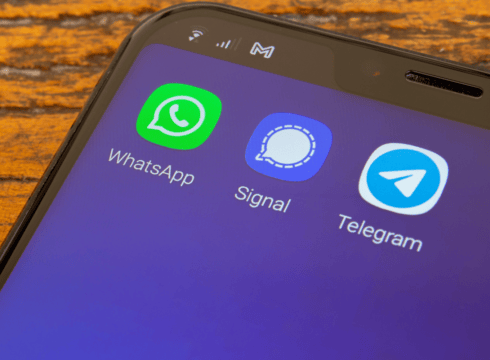Responding to TRAI’s consultation paper on regulating OTT communication apps, the BIF said the apps are adequately regulated under the IT Act, 2000, and other associated acts and rules
The think tank also opposed selective banning of OTT services as it is of the view that such measures would not pass the scrutiny of fundamental rights
The BIF said any attempt to introduce new regulatory frameworks would disrupt the existing competitive landscape and compromise consumer benefits and innovation
Inc42 Daily Brief
Stay Ahead With Daily News & Analysis on India’s Tech & Startup Economy
Think tank Broadband India Forum (BIF) has opposed the Telecom Regulatory Authority of India’s (TRAI’s) proposal to regulate over-the-top (OTT) communication apps, saying they are adequately regulated under the existing IT Act, 2000, and other associated acts and rules.
In its response to TRAI’s consultation paper on regulating OTT communication apps and selective banning of OTT services, the BIF said the current regulatory landscape has fostered a healthy growth of app economy in India.
Any attempt to introduce new regulatory frameworks could disrupt the existing competitive landscape and compromise consumer benefits and innovation, it warned.
The BIF is of the view that the existing laws, including the IT Act and the Consumer Protection Act of 2019, sufficiently address the regulatory, economic, security, privacy, safety, and consumer grievance aspects of OTT services.
Furthermore, government agencies possess the necessary powers under Section 69, 69A, and 69B of the IT Act for lawful interception, eliminating the need for additional regulatory burdens, the BIF said in its comments.
It has also opposed selective banning of OTT services as it is of the view that such measures would not pass the scrutiny of fundamental rights.
“OTTs have significantly enhanced accessibility to digital tools and amenities, enriching lives and empowering individuals by boosting productivity and socio-economic standing. This has resulted in massive economic spill-over effects, contributing to the nation’s prosperity. We hope that the regulator and the government will allow market forces to operate freely, incentivising growth and progress in this vital sector. TSPs can compete freely, and OTTs should not face restrictions in favour of TSPs,” BIF president T V Ramachandran said.
Telecom regulator TRAI released a consultation paper on regulating OTT communication apps in the country in July. The paper broadly covers two aspects – identification of a regulatory mechanism to cover OTT communication apps and the examination of issues related to selective banning of such apps.
The major takeaways of the paper include exploration of themes such as the need for selective banning of OTT communication apps, such as Meta-owned WhatsApp, Telegram and Google Meet, as well as lawful interception of messages by authorities.
The paper has raised questions like if there is a need for a collaborative framework between OTT communication apps and licenced telecommunication service providers, as well as sought clarity on the potential challenges that can arise out of such a framework and its impact on net neutrality, consumer access and consumer choice.
Recently, industry body Internet and Mobile Association of India (IAMAI), in response to the consultation paper, said that any framework that ‘leads’ to revenue sharing between OTT platforms and telecom operators would be violative of net neutrality norms.
The government began consultations on the process of regulating OTT communication apps last year. Later, it also released a draft Telecommunication Bill, 2022 to replace the Indian Telegraph Act, 1885, the Indian Wireless Telegraphy Act, 1933, and the Telegraph Wires Act, 1950.
{{#name}}{{name}}{{/name}}{{^name}}-{{/name}}
{{#description}}{{description}}...{{/description}}{{^description}}-{{/description}}
Note: We at Inc42 take our ethics very seriously. More information about it can be found here.


